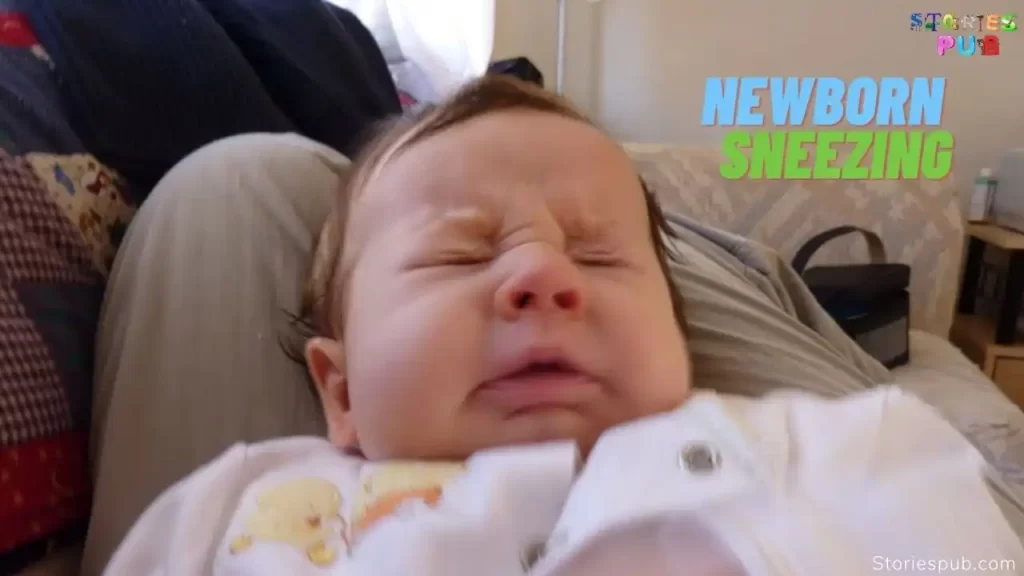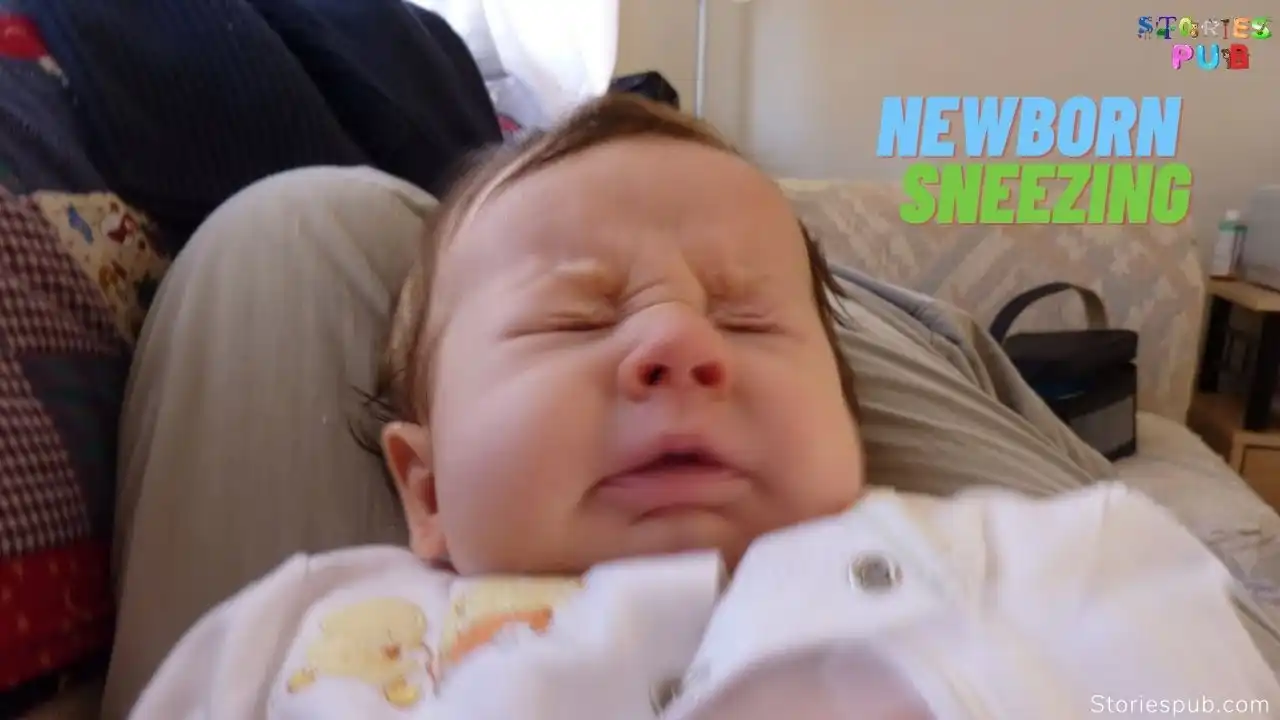Newborn Sneezing: Everything You Need to Know to Prevent It

You’ve just welcomed your newborn baby into the world and you can’t help but marvel at its tiny features. From their itty-bitty fingers to their chubby little cheeks, all of it is just so perfect, but then… they start to sneeze.
While this is a common occurrence in newborns, most parents are usually taken aback by it. So, if you find yourself wondering why your little one has been sneezing more than usual, this blog post will provide you with an answer.
We will discuss causes and prevention techniques for newborn sneezing, as well as what to do if your baby’s sneezing persists.
What is Newborn sneezing?
Sneezing is a reflex that helps to clear the nasal passages of irritants. It is common for newborns to sneeze frequently because their nasal passages are still developing and are therefore more susceptible to irritation. Newborn sneezing is usually not a cause for concern and will resolve itself as the baby’s nose continues to grow and mature.
However, if your newborn is sneezing excessively or if the sneezing is accompanied by other symptoms such as fever, congestion, or difficulty breathing, it is important to contact your pediatrician as these could be signs of a more serious condition.
Why do Newborns sneeze?
When a baby is born, their immune system is still developing and they are more susceptible to viruses and bacteria. This is why it’s important to keep them away from sick people and places with a lot of germs. However, even the cleanest homes can have dust particles that can irritate a newborn’s nose and cause them to sneeze.
Newborns also have narrower nasal passages than adults, which can make them more prone to congestion. When they breathe in, they sometimes suck in the air along with small particles of dust, pollen, or other irritants. This can cause them to sneeze as their body tries to get rid of foreign substances.
What are the causes of sneezing?
When your baby sneezes, it can be concerning. However, most of the time, it’s simply a normal bodily function. Sneezing helps to clear the nasal passages of irritants such as dust, pollen, and other particles. It’s also a reflex that’s designed to protect the body from potential threats.
Several things can trigger a sneeze, including:
-Allergens: If your baby is allergic to something in their environment, such as dust or pet dander, they may sneeze more often than usual.
-Dry air: When the air is dry, it can irritate the lining of the nose and throat, causing your baby to sneeze.
-Cold air: Cold air can also trigger sneezing by irritating the nose and throat.
-Facial expressions: Some babies sneeze when they make certain facial expressions, such as when they smile or laugh. This is known as “emotional sneezing.”
Tips for Dealing with a sneezing Newborn
Make sure your baby is getting plenty of rest and fluids. A stuffy nose can make it difficult for your baby to sleep, so try to create a calm environment for naps and bedtime. Extra fluids will also help thin out mucus and make it easier for your baby to breathe.
-Use a humidifier in your baby’s room. This will help keep the air moist and might help reduce congestion. Just be sure to clean the humidifier regularly to prevent mold and bacteria growth.
-Try saline nasal drops or spray. These can help loosen thick mucus so it’s easier for your baby to breathe. Apply the drops or spray into each nostril, then use a suction bulb syringe to remove any excess mucus.
-Keep your baby upright as much as possible. This position will help drain mucus from the nose and prevent it from pooling in the back of the throat.
-limit your exposure to irritants such as smoke, dust, and pollen
-keep your baby’s nose clear by using saline drops or a suction bulb
-avoid harsh chemicals and fragrances
-dress your baby in loose, comfortable clothing
-try not to overheat or over warm your baby
When should you worry about newborn sneezing?
In most cases, sneezing in a newborn is a normal reflex and is not a cause for concern. However, if your newborn is experiencing other symptoms, such as a fever, difficulty breathing, or a persistent cough, it may be a sign of an infection or other condition, and you should consult your pediatrician.
It’s also important to seek medical attention if your baby is sneezing frequently, having difficulty breathing or feeding, or if the sneezing is accompanied by nasal discharge, or if the baby is showing signs of distress.
If your baby was born prematurely or with a pre-existing medical condition, it’s important to discuss any concerns about sneezing with the pediatrician.
It’s also important to make sure that your baby is getting enough to eat, as sneezing can be a sign of an infection or other condition that is causing the baby to have difficulty feeding.
Takeaway
Newborn sneezing is quite normal and nothing to worry about. However, if your newborn sneezes frequently or has other symptoms, such as a fever, it’s important to seek medical attention. With a little care and understanding, you can help prevent your newborn from sneezing excessively and keep them healthy and happy.
Thanks For Reading … Newborn Sneezing: Everything You Need to Know to Prevent It
Newborn Sneezing
Hello Everyone, How did you like this (Parenting) Newborn Sneezing: Everything You Need to Know to Prevent It? if you like this article share your view in the comment box, and don’t forget to share this with your friends on Social Media so they can also redy this. For more keep visiting Storiespub.com.
Suggeted Articles





